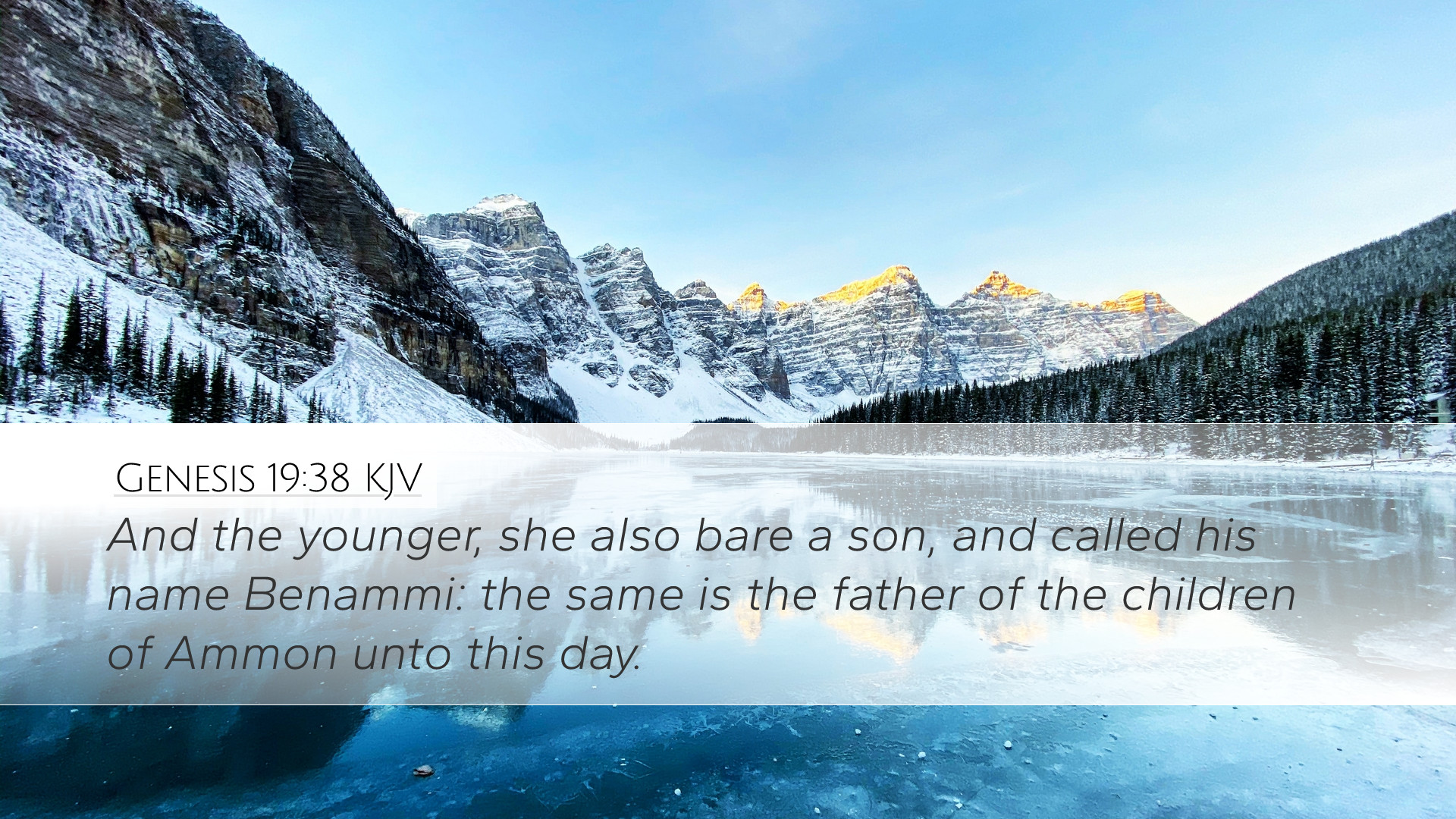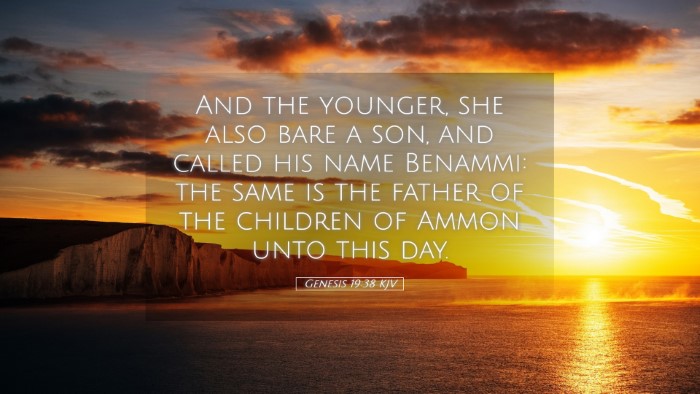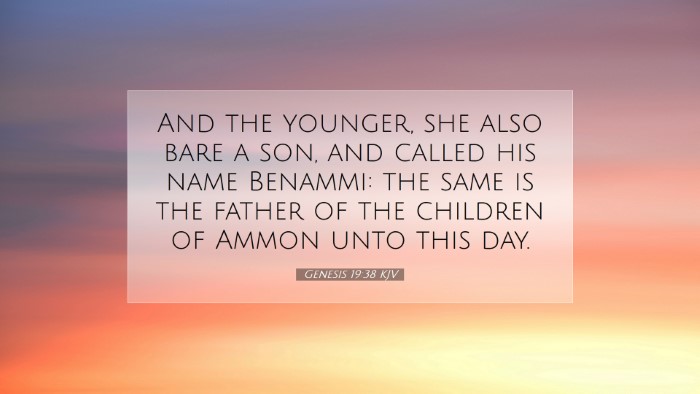Commentary on Genesis 19:38
Text of Genesis 19:38: "And the younger, she also bare a son, and called his name Benammi: the same is the father of the children of Ammon unto this day."
Introduction
This verse concludes the disturbing account of Lot and his daughters. After the destruction of Sodom and Gomorrah, Lot’s daughters resort to unconventional means to preserve their father's lineage. It raises various ethical and theological questions while illuminating themes of desperation, sin, and divine providence.
Historical Context
The events of Genesis 19 must be understood within the broader narrative of the patriarchal stories. Lot, having settled in Sodom, is a man entrenched in a society marked by wickedness. The subsequent actions of his daughters reveal the desperation of their isolation and the cultural implications of their circumstances.
- Matthew Henry's Perspective: Henry comments on the moral decline and social implications of the actions of Lot's daughters. Their choice reflects a complete departure from faith and an ensuing situation that highlights the depths to which despair can drive humanity.
- Albert Barnes' Analysis: Barnes emphasizes the sociological impacts of this event, particularly concerning the Ammonites. He discusses how this lineage would later interact with Israel and the theological implications of their origin.
- Adam Clarke's Remarks: Clarke delves into the etymology of the names and implications of the lineage. His analysis explains the significance of “Benammi,” meaning “son of my people,” reflecting the tension between familial loyalty and national identity.
Theological Considerations
The actions of Lot's daughters raise challenging theological questions about sin, judgment, and divine mercy. Despite the immoral actions, God's sovereignty persists over the lineage that arises from this union.
- Sin and Judgment: Lot’s daughters represent the stark realities of sin borne from fear and desperation. They act in a manner that blatantly disregards God's ordained institutions.
- God’s Sovereignty: Even through these acts, God continues to weave His divine narrative. The descendants of Lot were significant in biblical history, illustrating that God can bring good out of dire circumstances.
Lessons for Today
This narrative serves several poignant lessons for contemporary believers:
- Desperation Can Lead to Sin: The story illustrates how circumstances may lead individuals to make morally questionable choices. It is a reminder of the importance of maintaining faith in God’s provision.
- God Can Use Imperfect Situations: The lineage of Lot resulted in the creation of nations that would play roles in biblical history, reminding us that God's plans are not thwarted by human failure.
- The Importance of Righteous Influence: Lot's failure to influence his daughters toward a life of righteousness highlights the need for believers to be active examples of faith to those around them.
Conclusion
Genesis 19:38 is a powerful reminder of both the complexities of human nature and the overarching sovereignty of God. Through a dark chapter in the narratives of Lot and his family, we observe how God works through the flawed actions of humanity to fulfill His divine purposes. This commentary synthesizes various insights, providing valuable perspectives for pastors, students, and scholars as they reflect on the profound themes embedded in this somewhat disturbing yet theologically rich account.


